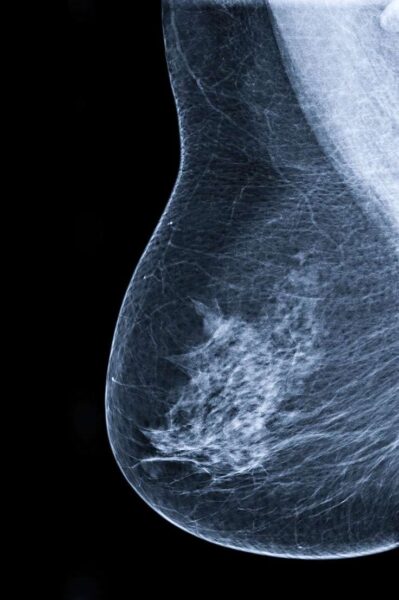Your Resources
Breast Cancer
Breast Cancer Overview

Breast Cancer is the second most common cancer in women. 1One in eight women will be diagnosed with breast cancer in their lifetime. Early detection is key to understanding your risk factors and can help your physician tailor your healthcare to your needs.
Make your health a winning play against breast cancer. Schedule your routine mammogram with your provider today!
_____________
1 https://www.cancer.gov/types/breast
Breast Cancer Video FAQs
Patients with early stages of breast cancer often don’t have symptoms. This makes the need for yearly mammograms and regular self-examinations even more important in order to detect early stage breast cancer. Many of these symptoms can be caused by non- cancerous conditions but it’s important to have any new changes to the breast area checked out by a healthcare provider.
Some symptoms of breast cancer include:
- Lump in the breast or underarm area.
- Enlargement of pores around the breast or nipple area, often described as an orange peel’s texture.
- Dimpling on the breast.
- Unexplained swelling or shrinkage of one of the breasts.
- Inverted nipple.
- Nipple discharge that is clear or bloody.
There are a variety of 2factors that can determine your risk of developing breast cancer, it’s important to know these factors and discuss them with your physician.
- Age: As with many other diseases, your risk of breast cancer goes up as you get older. About two out of three invasive breast cancers are found in women 55 or older.
- Race/Ethnicity: White women are slightly more likely to develop breast cancer than Black, Hispanic, and Asian women. But Black women are more likely to develop more aggressive, more advanced-stage breast cancer diagnosed at a young age.
- Family History: A woman’s risk for breast cancer is higher if she has a mother, sister, or daughter (first-degree relative) or multiple family members on either her mother’s or father’s side of the family who have had breast or ovarian cancer.
- Personal History: Women who have had breast cancer are more likely to get breast cancer a second time.
- Genetic Mutations: Women who have genetic mutations to certain genes, such as BRCA1 and BRCA2, are at higher risk of breast and ovarian cancer.
- Breast Density: Dense breasts have more connective tissue than fatty tissue, which can sometimes make it hard to see tumors on a mammogram. Women with dense breasts are more likely to get breast cancer.
- Radiation to chest or face before the age of 30: If you had radiation to the chest or face to treat another cancer or acne, you have a higher-than-average risk of breast cancer.
- Pregnancy or Breastfeeding History: Breastfeeding can lower the risk of breast cancer if a woman has breastfed longer than a year, and women who have never had children or had their first child after 30 have a higher risk than women who had their children before the age of 30.
- Menstrual and Menopause History: Starting menstrual periods before age 12 and starting menopause after age 55 expose women to hormones longer, raising their risk of getting breast cancer.
- Using Hormone Replacement Therapy: Some types of HRT can increase your risk of breast cancer.
Certain lifestyle behaviors can also affect potential breast cancer risk such as factors relating to weight, smoking, alcohol consumption and exercise habits.
_______________________
2 https://www.breastcancer.org/risk/risk-factors
Early diagnosis of breast cancer plays a critical part in a patient’s treatment options and survival rates. Self breast exams and yearly mammograms are recommended screening tests to detect cancer in its early stages. Ultrasounds and MRIs are also used to support and categorize the diagnoses.
Once the breast cancer has been diagnosed, your physician will discuss your treatment options. Treatment plans vary from patient to patient depending on a variety of factors.
Clearview Cancer physicians treat each patient with individualized care making sure the treatment plan meets guidelines set by the National Comprehensive Care Network (NCCN) There are standard treatments which are current treatment options used by oncologists, and there are also clinical trials available which help advance the standard of care by offering patients regimens or new drugs currently not used as standard treatment. Support groups can be an important asset to a treatment plan that can increase positive patient outcomes.
Breast cancer can be treated with one or more of the following treatment options:
